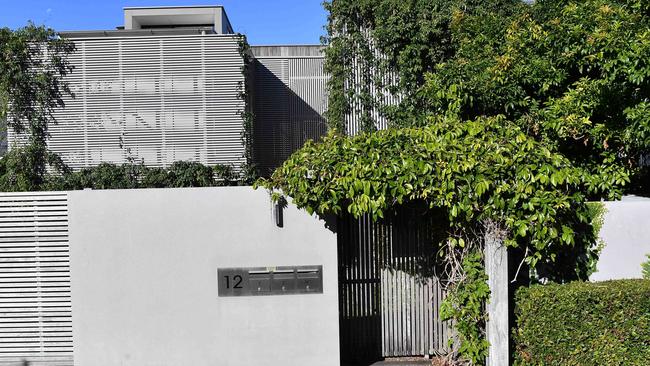Noosa Council’s planning scheme tested by Sunshine Beach duplex
A court decision on a Sunshine Beach holiday home is the first legal test of Noosa Council’s controversial short-term accommodation laws. Read the outcome.

Police & Courts
Don't miss out on the headlines from Police & Courts. Followed categories will be added to My News.
A crucial judgment has been handed down in the test case for Noosa’s controversial short-stay accommodation legislation.
A judge has found that the Noosa Council’s 2015 approval of a duplex in Sunshine Beach did not authorise its use as a short-term rental.
The Noosa Council granted development approval of a duplex at 12 Stevens St in 2015.
In March 2022, the duplex owner, Escanaba Pty Ltd, applied to the Noosa Council for approval to short-term let the property and in April 2022, the council refused the application for 1/12 Stevens St.
The owner appealed the council’s decision in the Planning and Environment Court.
It was the first time a short-stay letting application refusal had been lodged with the court.

Noosa Mayor Clare Stewart said at the time the case was a “litmus test” and would set a precedent.
March real estate data showed the median price of a home in Sunshine Beach was more than $3m, making it the most expensive suburb on the Sunshine Coast.
It was closely followed by Noosa Heads and Minyama.
Court documents showed the reason the council refused the application was that the 2015 approval for the duplex “did not allow for visitor or short-term accommodation use” of the property.

Court documents lodged by the appellant, Escanaba Pty Ltd, stated that the use of the premises for short-term accommodation was lawful.
“The development approval approved a material change of use of the premises to the use of “type two – duplex” as defined in the Noosa Plan current as at September 16, 2013 (the Planning Scheme),” the court documents stated.
“Under the provisions of the planning scheme, the approved use ‘type two – duplex’ did allow the premises to be used for short-term accommodation.”
Court documents also stated that the premises had been used as short-term accommodation since its construction and the owner wished to maintain that use.
Judge Glen Cash upheld the council’s ruling in his decision on May 25.
The judge stated on May 12 that the question “to be answered, for now,” was whether the owner’s 2015 approval for a material change of use authorised use for short-stay accommodation under Noosa Council local law.
“For the reasons that follow the question must be answered, ‘no’,” the judge stated.

The judge outlined in court documents the conditions under which a local government had discretion in granting approvals and the terms of the 2015 approval and the planning scheme at the time.
In the final order on May 25, the judge stated each party would bear their own costs of the appeal.
Noosa Council development assessment manager Patrick Murphy said the council welcomed the outcome.
“Council took the position that a duplex approved under the 2006 Noosa Plan cannot be used for short-term accommodation and does not have existing use rights for short-term accommodation,” he said.
“The decision by the Planning and Environment Court to dismiss the appeal upholds this position.
“It’s a positive outcome as it protects dwelling units within a duplex approved under the Noosa Plan 2006 for use by permanent residents.
“Noosa Council has a strong track record when it comes to applying and defending the planning scheme, so it’s pleasing to see the court once again recognise council’s consistent approach to planning and land use.”
Mr Murphy said that, with regards to legal costs, the general rule in relation to costs for proceedings in the Planning and Environment Court was that each party to a proceeding must bear their own costs.
“That general rule is set out in section 59 of the Planning and Environment Court Act 2016 (PEC Act),” he said.
Attempts have been made to contact the directors of Escanaba Pty Ltd via their legal representatives.





